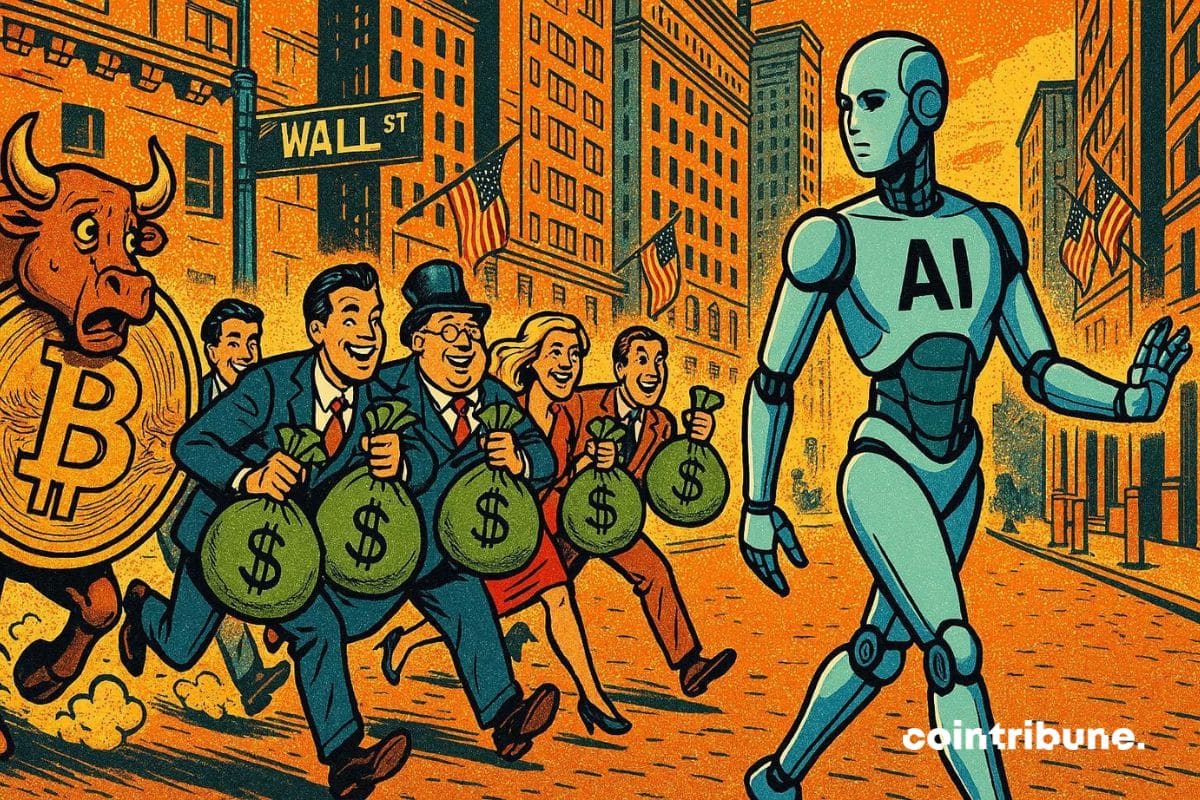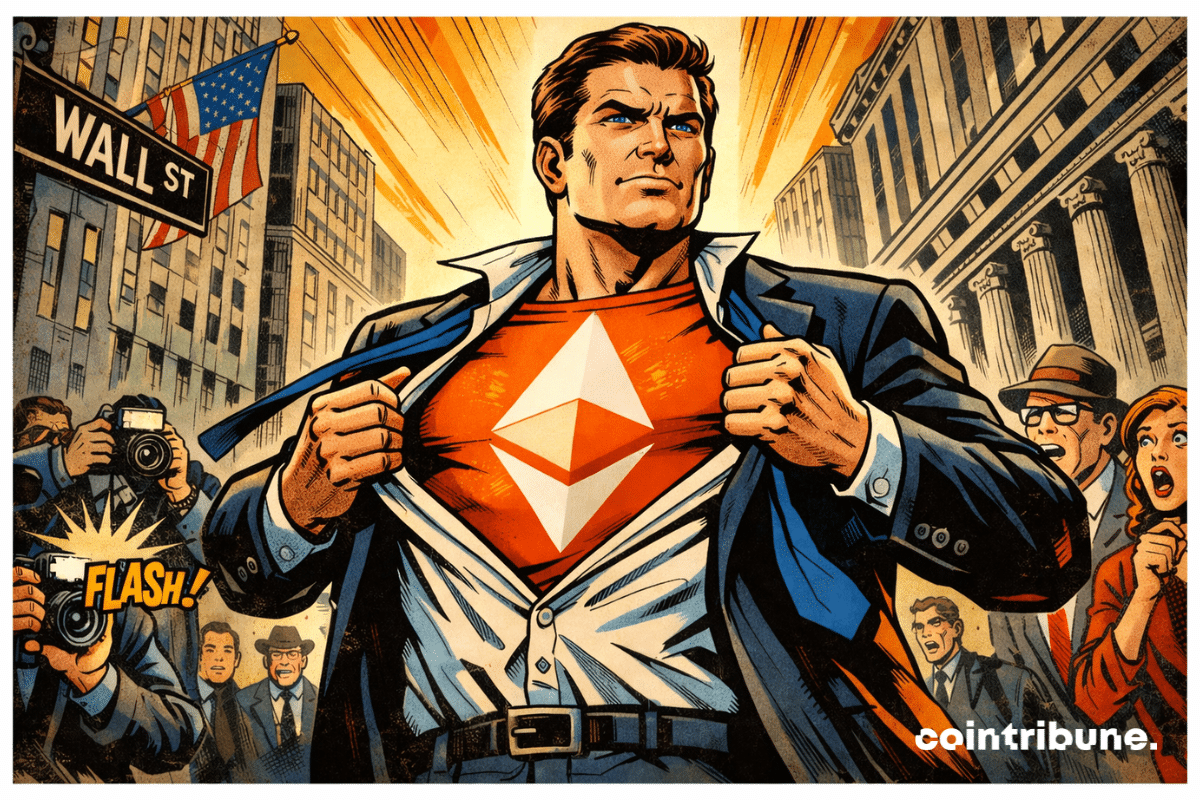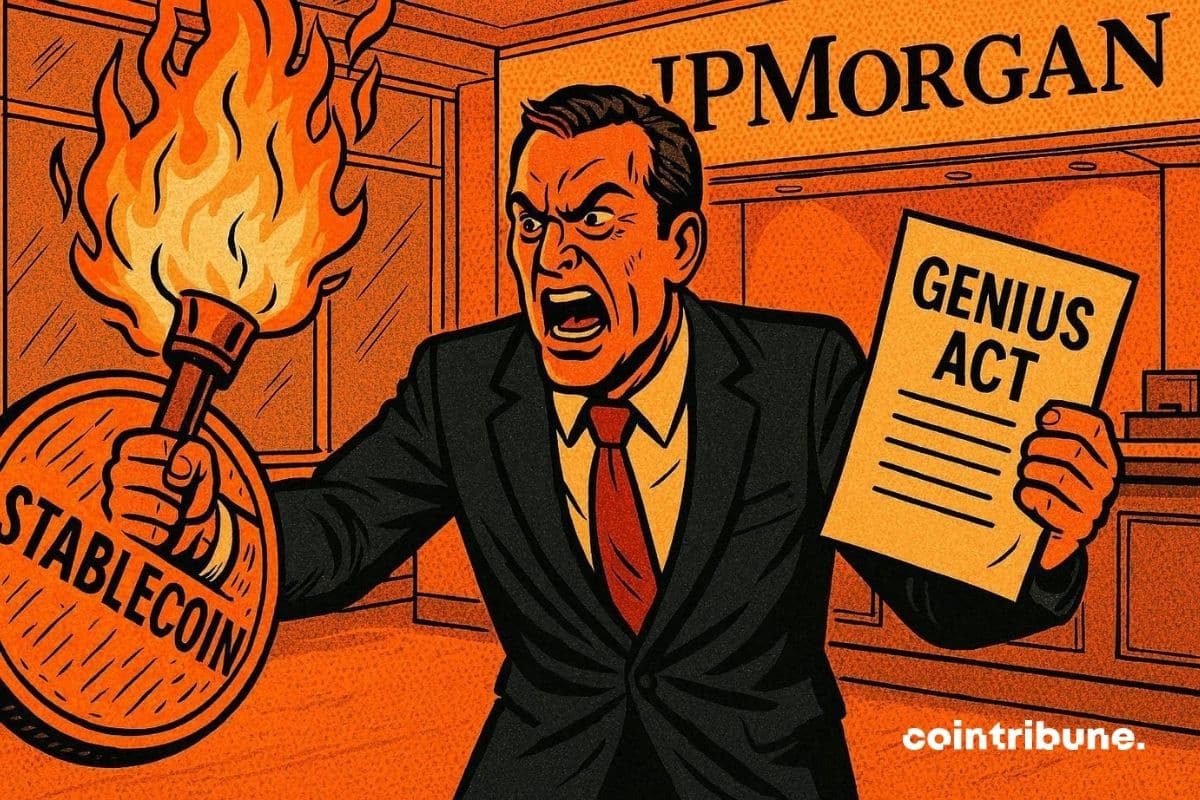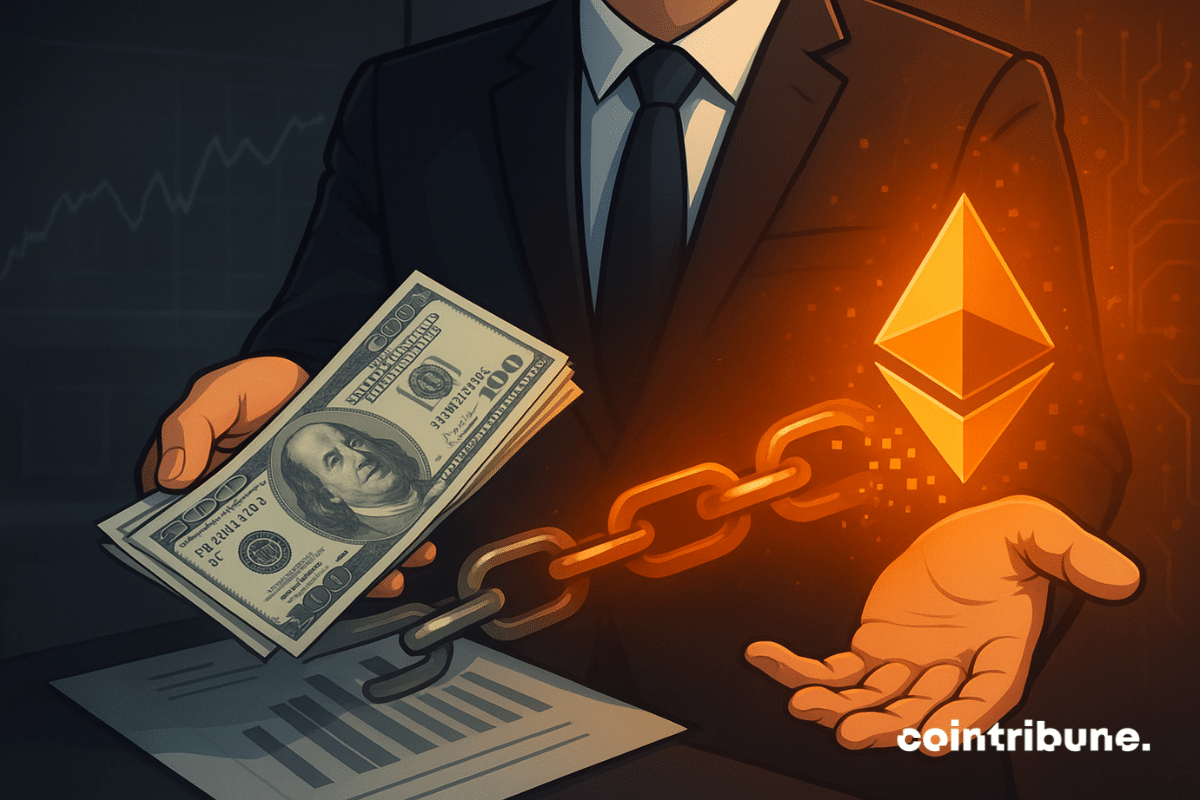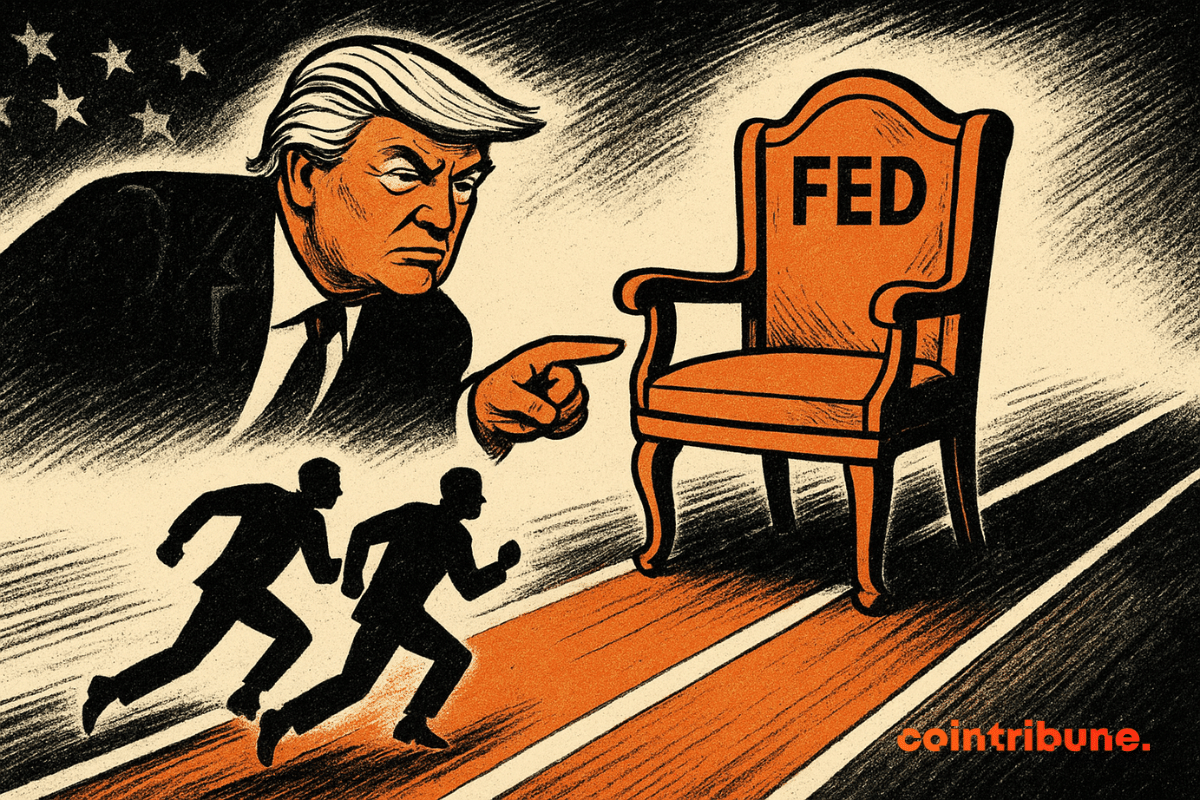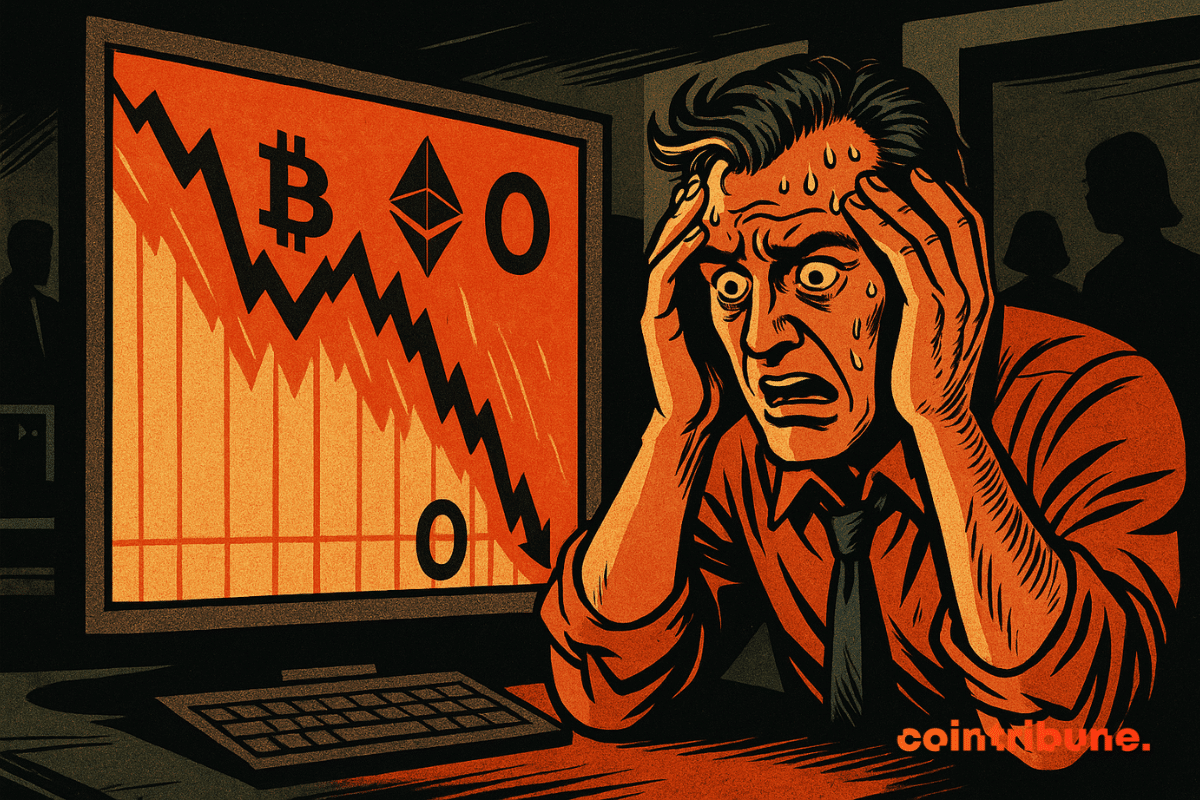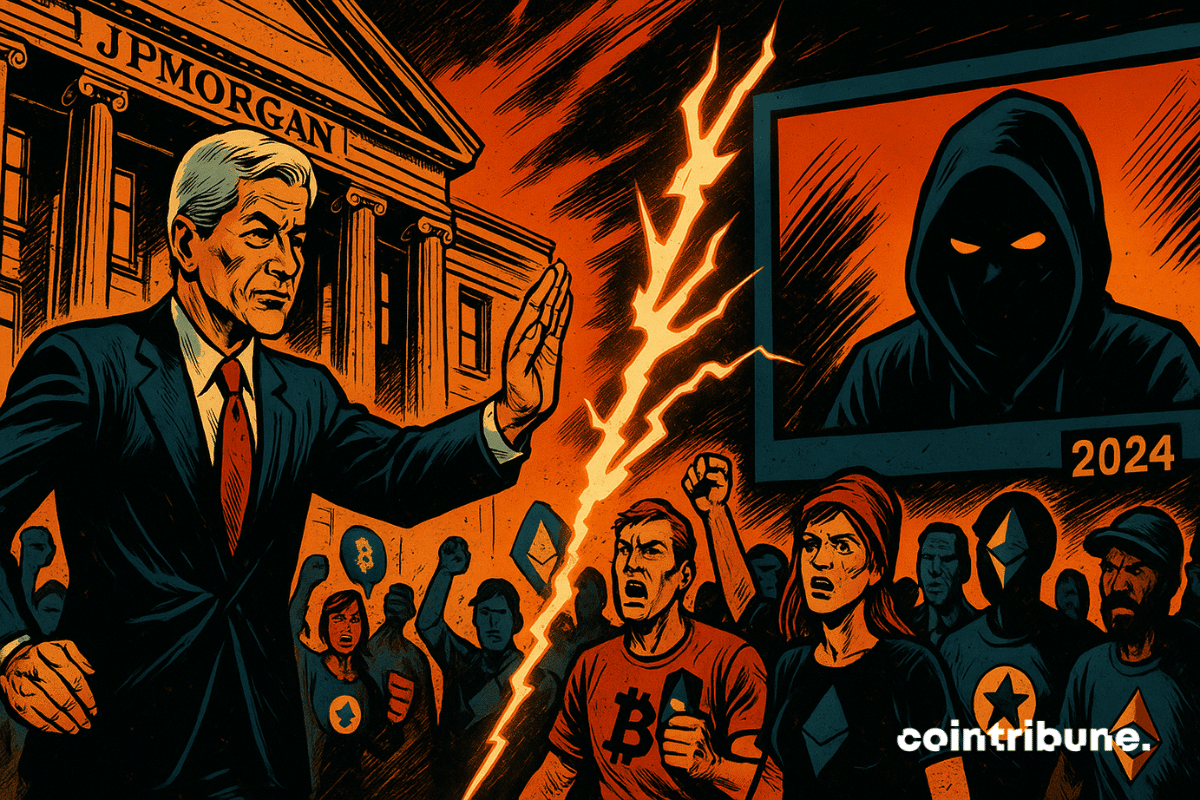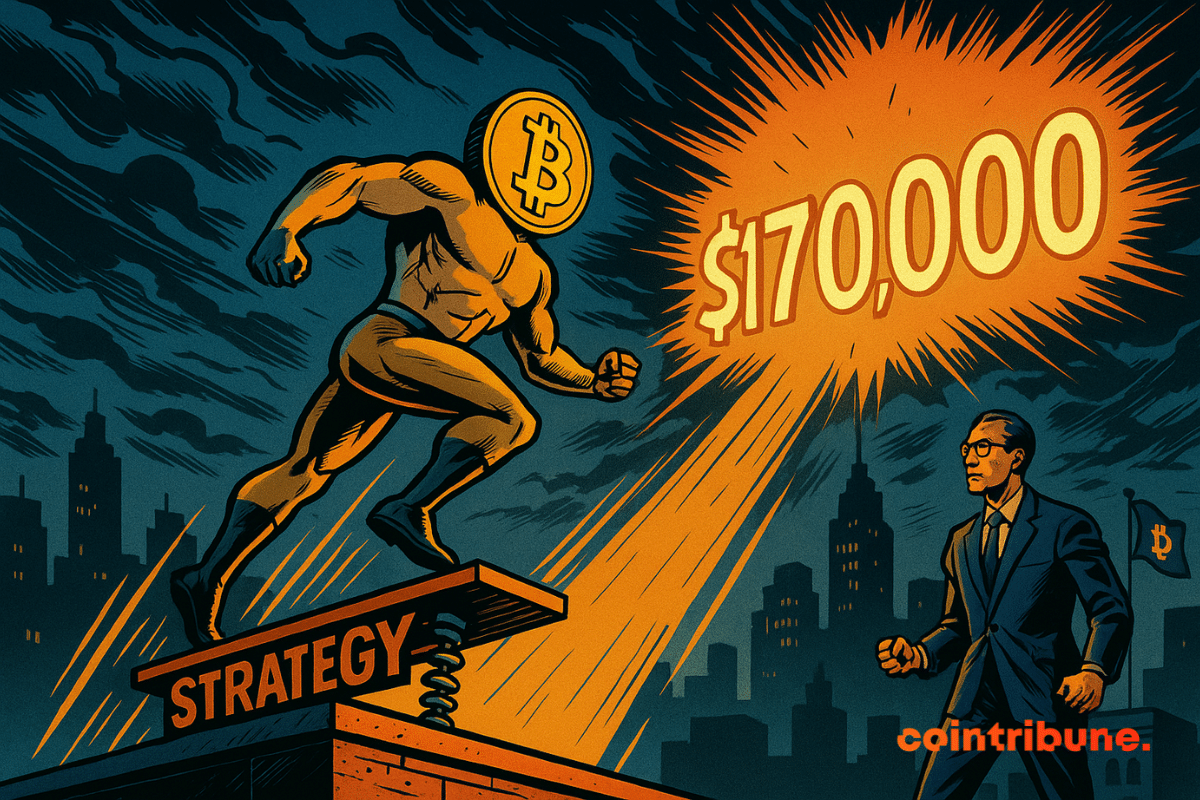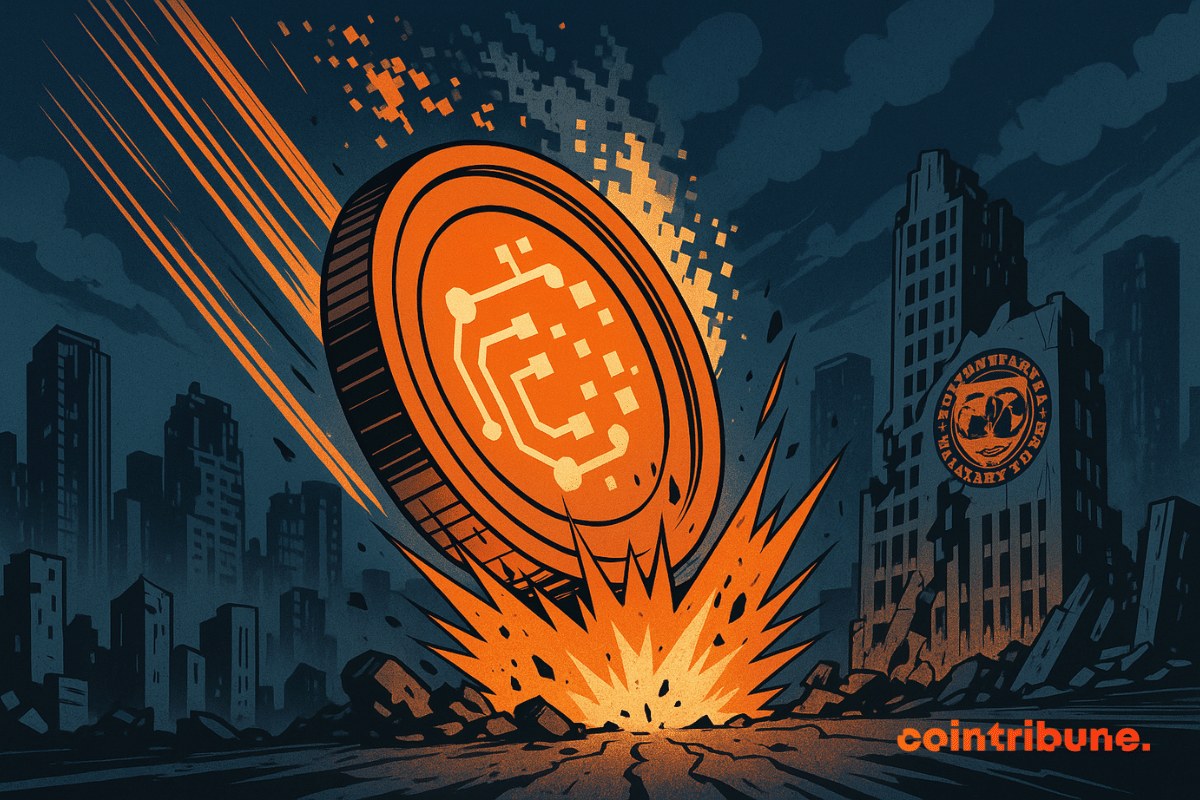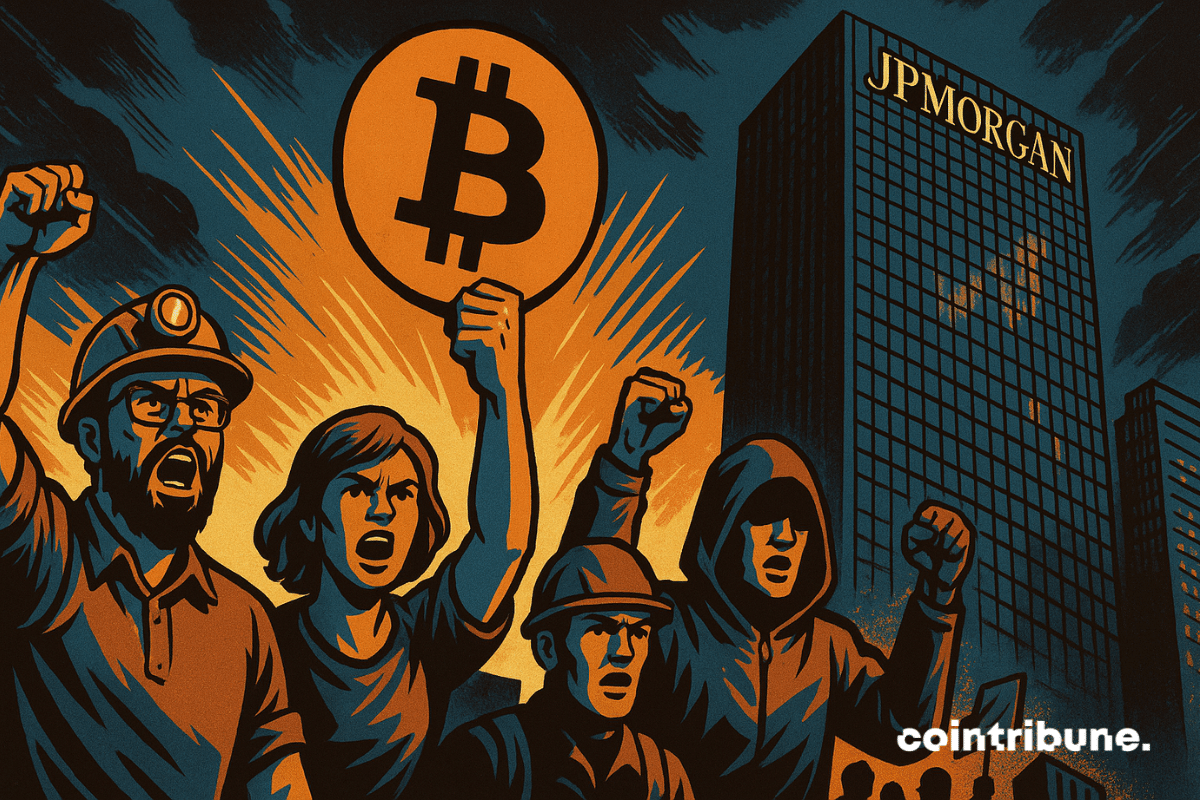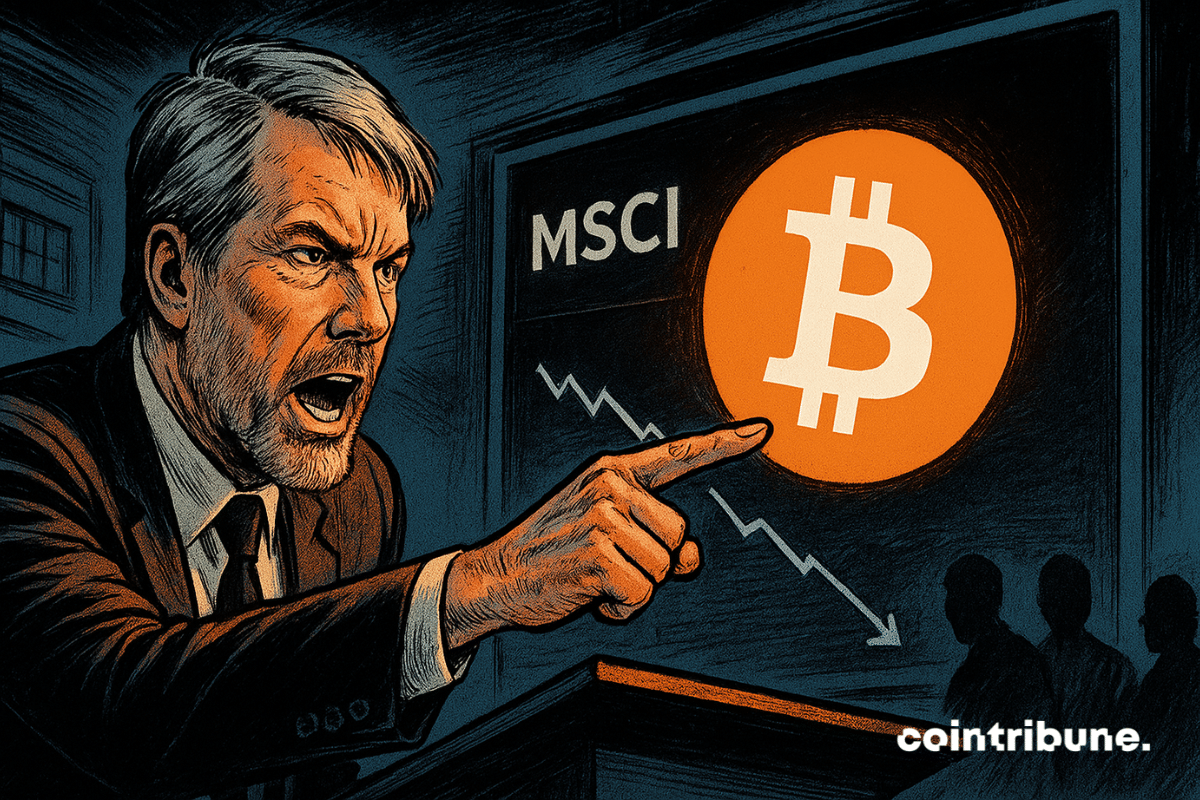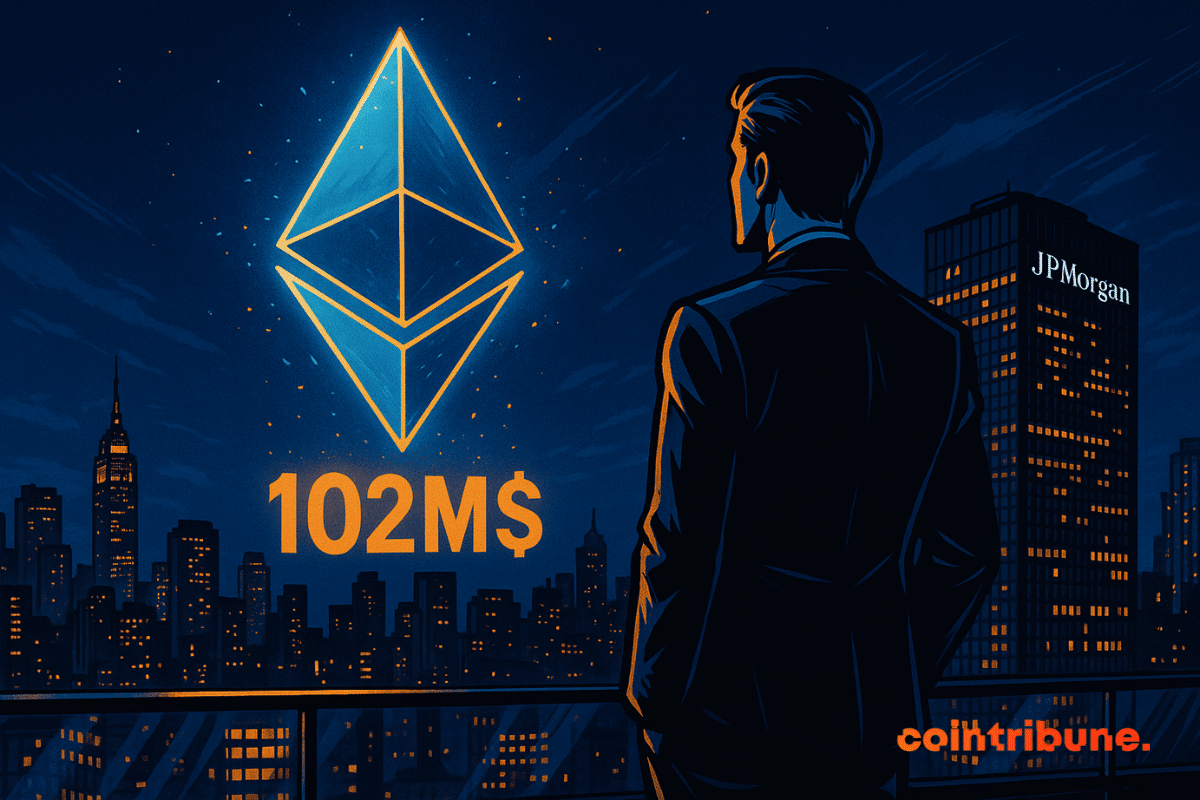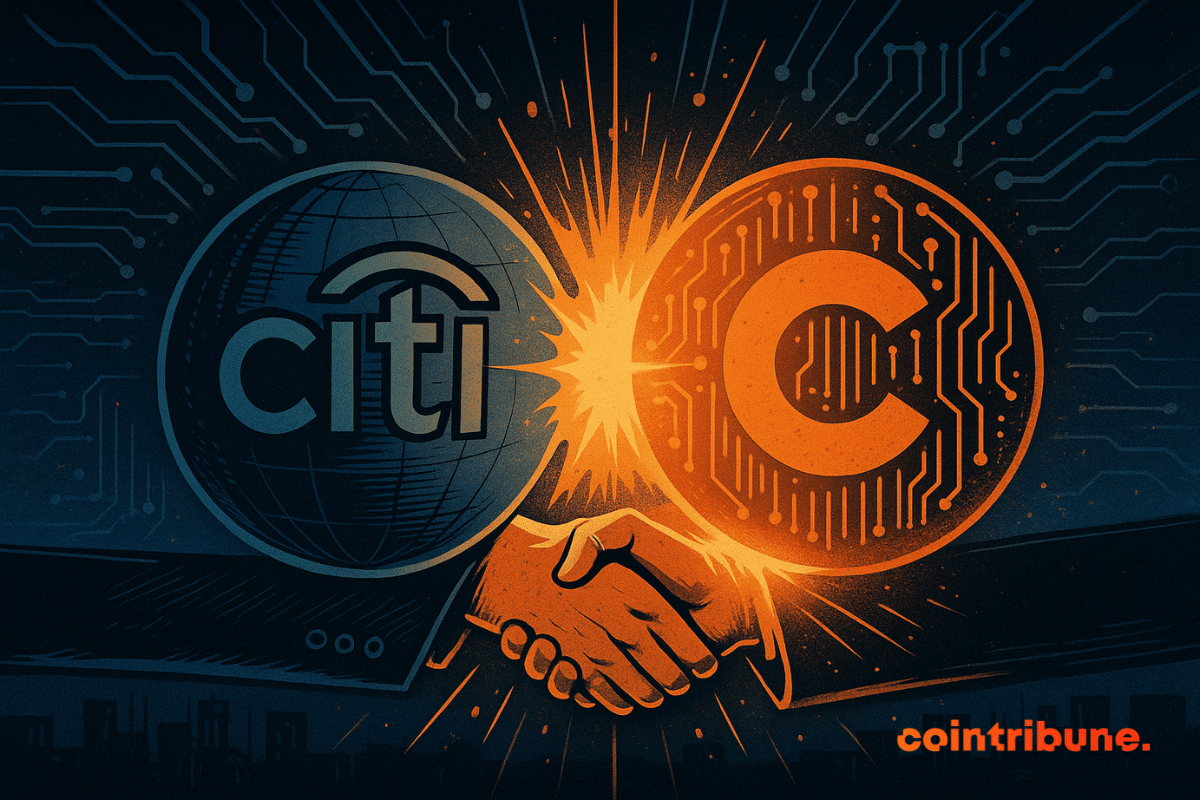In 2026, family offices massively bet on AI, leaving crypto behind. With 89% of them having no exposure to digital assets, the gap widens. Why such an imbalance? What are the risks and opportunities for investors?
JPMorgan Chase
Investors are turning away from Bitcoin, driving strong demand for gold and silver. JPMorgan highlights potential gold prices of $8,500 as metals attract new inflows.
Ethereum may have chained updates, but doubt persists about its ability to generate sustainable activity. In a report published this Wednesday, JPMorgan analysts question the real effects of the Fusaka update, which nevertheless caused an immediate surge on the network. Behind the technical gains, the question of economic viability remains unresolved. The blockchain co-founded by Vitalik Buterin faces limits that even its latest advances do not seem able to correct.
Donald Trump accuses JPMorgan of having closed his accounts for political reasons and demands 5 billion dollars before the Florida courts. By directly targeting CEO Jamie Dimon, the president reignites the explosive debate on "debanking," a practice that fuels tensions between the political and financial spheres. This case questions the neutrality of major American banks. While Trump denounces ideological exclusion, JPMorgan, on its side, rejects any accusation of discrimination.
The so-called Ethereum Killer blockchains are stirring to nibble away market shares and gain media spotlight. But deep down, in reality as in collective perception, there is only one master. Its name comes up in every conference, every strategic plan, every institutional tweet. Ethereum is no longer just a technology…
Yield stablecoins are shaking up the crypto universe and worrying JPMorgan. The GENIUS Act could become the key to strict regulation. Between innovation and the threat of a parallel bank, the future of stablecoins is being decided now. Dive into the analysis of the issues and discover why this debate is crucial.
Stablecoins have long been the discreet plumbing of crypto. Nobody applauds them, but without them, part of the market seizes up. Today, they are coming out of the shadows for a very concrete reason: savings and bank deposits. In the United States, local bank leaders are pressing the Senate to tighten certain points of legislation on stablecoins. Their fear: seeing part of the deposits migrate to dollar tokens, attracted by “rewards” that increasingly look like a yield. On the other side, JPMorgan refuses to give in to alarmism. The bank sees it rather as a new brick in a monetary system already composed of several layers. And this reading gap says a lot about the battle underway: financial stability, competition, or a simple war of models?
JPMorgan plays the bankers of the future: its JPM Coin infiltrates Canton, the blockchain of the big players. It smells like crypto fragrance on Wall Street, with more control than utopia.
JPMorgan freezes BlindPay and Kontigo accounts over Venezuela links as stablecoins gain a key role in the country’s economy.
JPMorgan Chase, one of the world's largest banks, takes a bold step towards crypto by exploring the introduction of trading services for its institutional clients. This development comes amid regulatory changes in the United States, even prompting the most conservative financial institutions to reassess their approach to these assets. Such a decision could well redefine the relationship between traditional finance and this ecosystem.
Six years after launching its own private blockchain, JPMorgan Chase is radically changing strategy. The bank has just transferred its digital deposit token, the JPM Coin, to Base, Coinbase's public network. A major turning point for an institution that until now had exclusively relied on its closed ecosystem Kinexys.
JPMorgan Chase is expanding its blockchain strategy with the launch of a tokenized money-market fund on Ethereum. The product is backed by $100 million in internal capital and targets qualified investors seeking daily yield through an on-chain structure backed by short-term debt. Market observers say the move reflects clearer regulation, rising client demand, and growing interest in tokenized real-world assets.
Markets are watching closely as the race to lead the US Fed continues, with political pressure on interest rates building. Recent comments from Jamie Dimon and Donald Trump suggest the outcome remains uncertain, with potential consequences for monetary policy and risk assets, including crypto.
JPMorgan, one of the largest American banks, has just completed a historic transaction: a 50 million dollar commercial paper fully managed on the Solana blockchain. Galaxy Digital, Coinbase, and Franklin Templeton participated in this pioneering operation settled in USDC.
Crypto markets have started coughing again. No spectacular crash this time, but a slow loss of breath: crypto trading volumes are declining, prices are correcting, and even spot bitcoin ETFs are turning red. For JPMorgan, the picture is clear: the appetite for risk is fading, and the market stalls just as it was supposed to confirm its strong comeback.
Accused of closing crypto accounts linked to Trump, JPMorgan denies and denounces unfair rules. All the details here!
When a company named Strategy becomes the compass of bitcoin, even JPMorgan takes out its calculator. Bull run or crash? The answer lies between MSCI, reserves, and a few well-placed billions.
Flash crashes, digital dominos and states lying in wait: the IMF sees tokenization less as a revolution than as an explosive cocktail ready to blow up finance... but hush, it's bubbling.
The imminent launch of a structured product on bitcoin by JPMorgan is causing reactions. For part of the crypto community, this is not just a simple financial innovation, but a targeted offensive against actors like Strategy. As bitcoin gains ground as a reserve asset, the divide between traditional finance and pro-BTC strategies becomes clearer. Behind the apparent neutrality of the markets, some denounce an attempt to influence aimed at weakening the companies most exposed to the asset.
JPMorgan Chase has just filed an application with the SEC for an innovative financial product that could radically transform the way investors are exposed to Bitcoin. The stake? Potentially massive returns by 2028. But at what cost?
Bitcoin tumbles, miners migrate to AI. Microsoft pays, stocks rise… But their profits? Still striking. The future is now written between cloud and a gamble.
JPMorgan Chase closes the accounts of Jack Mallers, CEO of Strike, without explanation! This new case of crypto debanking reveals a worrying trend... Why are crypto ecosystem participants excluded from the traditional banking system?
The crypto community is igniting after the announcement that Strategy and other cryptocurrency-holding companies could be excluded from major stock indices. A boycott movement is gaining momentum. Will JP Morgan be the next target of the Bitcoin revolution?
Bitcoin is collapsing, and this time, the culprits are not who we think. JPMorgan unveils an unexpected phenomenon: small investors, once loyal, trigger panic by emptying their ETFs. Who are these mysterious sellers, and why are they shaking the crypto market? The answer will surprise you.
DBS and J.P. Morgan are working together to enable seamless tokenized deposits between banks while exploring interoperability across blockchain platforms.
When JPMorgan flirts with Ethereum without ever slipping the ring on its finger... 102 million slipped into Bitmine, it's discreet, clever, and above all very, very crypto-compatible.
Michael Saylor sees bitcoin soaring to the skies, Wall Street is converting... What if the crypto guru was still right despite geopolitical turbulence?
The boundary between traditional finance and the crypto universe blurs a little more each day. After years of mistrust and volatility, the major Wall Street players are finally extending a hand to the blockchain ecosystem. In this opening context, ConsenSys, the company behind the famous MetaMask wallet, is about to cross a decisive step: its public offering. An approach that symbolizes not only the sector's growing maturity but also the official entry of crypto into the institutional capital sphere.
U.S. bank Citi is taking a decisive step into digital payments by joining forces with Coinbase to pilot stablecoin transactions. The partnership marks a turning point in Wall Street’s embrace of blockchain-based money, following the U.S. GENIUS Act's approval earlier this year. As the stablecoin market heads toward a projected $4 trillion valuation by 2030, Citi’s move positions it at the forefront of institutional adoption.
JPMorgan upgraded Coinbase to Overweight, citing strong growth potential from its Base network, which could be worth up to $34 billion.
